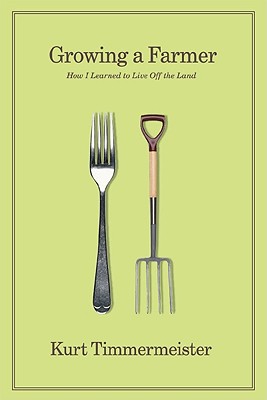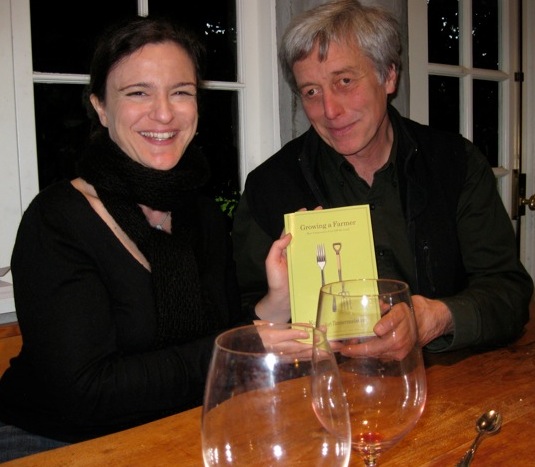Borders Reportedly to Declare Bankruptcy This Week
 As early as today or tomorrow, Borders will file for Chapter 11 bankruptcy reorganization, close between 150 and 250 of its 500 superstores and 165 smaller stores and lay off thousands of its 19,500 employees, the Wall Street Journal reported.
As early as today or tomorrow, Borders will file for Chapter 11 bankruptcy reorganization, close between 150 and 250 of its 500 superstores and 165 smaller stores and lay off thousands of its 19,500 employees, the Wall Street Journal reported.
The move comes after the company's implausible plan to have publishers finance millions of dollars in debt went nowhere, and its two major shareholders--chairman Bennett LeBow and Pershing Square Capital's William Ackman--apparently decided not to invest any more money in the company. (LeBow will likely lose the $25 million he invested last year and Pershing Square will bid adieu to at least $125 million.)
The Journal said that Borders has abandoned efforts to refinance its debts (its agreement last month with GE Capital for $550 million in loans was contingent on Borders obtaining other loans and having publishers and others assume some of its debt) and is now seeking debtor-in-possession bankruptcy financing for about $450 million. It's also talking with GA Capital about converting some $50 million in junior debt to bankruptcy financing and obtaining another $10 million.
In its bankruptcy filing, Borders will list about $1 billion in liabilities. "Many Wall Street bankers and lawyers who have studied the chain believe it may not be able to avoid liquidation," the Journal added.
Late on Friday, shares in Borders fell 33% and hit a new all-time low of 25 cents after the Journal reported on the company's plans. The company's market capitalization is now a mere $18 million, or less than $28,000 per store.
 Today's Wall Street Journal predicts that Borders's contraction and possible end "will mean fewer places for consumers to buy books, which in turn is expected to speed the pace of online and e-book sales."
Today's Wall Street Journal predicts that Borders's contraction and possible end "will mean fewer places for consumers to buy books, which in turn is expected to speed the pace of online and e-book sales."
The Journal did note that Barnes & Noble and independent booksellers should benefit from Borders's closings.
But several people see the Borders saga as what one called "the penultimate step in the demise of bookstores in general."
Mark Coker, CEO of e-book publisher Smashwords, said, "If you remove books from our towns and villages and malls, there will be less opportunity for the serendipitous discovery of books. And that will make it tougher to sell books."
Author Seth Godin said, as the Journal put it, "What will be published in the future will have less to do with what bookstores carry and more to do with what readers tell each other about new books."
Literary agent Larry Kirshbaum expressed concern about Borders's contraction on works by little-known or new writers, saying, "Overall, Borders is probably around 8% of sales for many publishers, but on certain titles, Borders could be 20%. That's a big number, especially when you are talking about smaller titles. How will those books get adequate distribution?"



SHELFAWARENESS.1222.S1.BESTADSWEBINAR.gif)


SHELFAWARENESS.1222.T1.BESTADSWEBINAR.gif)
 In the many analyses of Borders's problems, people cite a
range of reasons, most notably the company's decision to outsource its
website to Amazon in 2001; a revolving door in the executive suite over
the past few years; expensive long-term leases; and a huge debt load.
But for us there were other factors that hurt Borders, some of the
company's own making, some it had no control over:
In the many analyses of Borders's problems, people cite a
range of reasons, most notably the company's decision to outsource its
website to Amazon in 2001; a revolving door in the executive suite over
the past few years; expensive long-term leases; and a huge debt load.
But for us there were other factors that hurt Borders, some of the
company's own making, some it had no control over: appreciate Walden, which at one point had some 1,300 stores, except
perhaps as a cash cow.
appreciate Walden, which at one point had some 1,300 stores, except
perhaps as a cash cow. profitable,
but which many considered a distraction. Unfortunately, the financial
collapse in 2008 shook the company to the ground, bringing on the
Ackman-LeBow era of the past two years, when a hedge fund manager and a
corporate raider, both of whom represent the worst of American
capitalism, took over and drove the company into the ground.
profitable,
but which many considered a distraction. Unfortunately, the financial
collapse in 2008 shook the company to the ground, bringing on the
Ackman-LeBow era of the past two years, when a hedge fund manager and a
corporate raider, both of whom represent the worst of American
capitalism, took over and drove the company into the ground. The
record of William Ackman and Bennett LeBow at Borders has involved
inadequate investment, brutal staff cuts, the squeezing of remaining
employees, a revolving door in the executive suite, deals that seemed to
benefit them more than the company and other shareholders, deafness
about the company's problems and the hiring of more management with no
experience in the book world. Last year, who could not believe the end
was at hand when the new chairman and major shareholder of Borders
turned out to be a man who had a history of destroying companies,
"borrowing" from them, and whose claim to fame was taking over a
cigarette company?--
The
record of William Ackman and Bennett LeBow at Borders has involved
inadequate investment, brutal staff cuts, the squeezing of remaining
employees, a revolving door in the executive suite, deals that seemed to
benefit them more than the company and other shareholders, deafness
about the company's problems and the hiring of more management with no
experience in the book world. Last year, who could not believe the end
was at hand when the new chairman and major shareholder of Borders
turned out to be a man who had a history of destroying companies,
"borrowing" from them, and whose claim to fame was taking over a
cigarette company?-- In a
In a  The
The  Love is in the air today, but the deadline has passed for entries in
Love is in the air today, but the deadline has passed for entries in  How not to win friends and influence people in the children's book community. On BBC's new book program, Faulks on Fiction,
Martin Amis offended almost everyone by saying, "People ask me if I
ever thought of writing a children's book. I say, 'If I had a serious
brain injury I might well write a children's book,' but otherwise the
idea of being conscious of who you're directing the story to is anathema
to me, because, in my view, fiction is freedom and any restraints on
that are intolerable.... I would never write about someone that forced
me to write at a lower register than what I can write."
How not to win friends and influence people in the children's book community. On BBC's new book program, Faulks on Fiction,
Martin Amis offended almost everyone by saying, "People ask me if I
ever thought of writing a children's book. I say, 'If I had a serious
brain injury I might well write a children's book,' but otherwise the
idea of being conscious of who you're directing the story to is anathema
to me, because, in my view, fiction is freedom and any restraints on
that are intolerable.... I would never write about someone that forced
me to write at a lower register than what I can write." I Am Number Four, based on the book by James Frey (yes, that James Frey) and Jobie Hughes writing as Pittacus Lore, number one in the Lorien Legacies series, opens this Friday, February 18. Alex Pettyfer stars as a superhero hiding among normal teenagers to avoid a deadly enemy. Directed by D.J. Caruso. A movie tie-in edition is available from HarperCollins ($17.99, 9780062026248).
I Am Number Four, based on the book by James Frey (yes, that James Frey) and Jobie Hughes writing as Pittacus Lore, number one in the Lorien Legacies series, opens this Friday, February 18. Alex Pettyfer stars as a superhero hiding among normal teenagers to avoid a deadly enemy. Directed by D.J. Caruso. A movie tie-in edition is available from HarperCollins ($17.99, 9780062026248).  The Syfy network is developing a series titled Among the Spirits, named after Houdini's book A Magician Among the Spirits, published in 1924.
The Syfy network is developing a series titled Among the Spirits, named after Houdini's book A Magician Among the Spirits, published in 1924.  The first official
The first official  We've all had this thought: "Enough. I must make a change. I will buy a farm. I can live off the land." But do you know anyone who really has? Meet Kurt Timmermeister.
We've all had this thought: "Enough. I must make a change. I will buy a farm. I can live off the land." But do you know anyone who really has? Meet Kurt Timmermeister.
